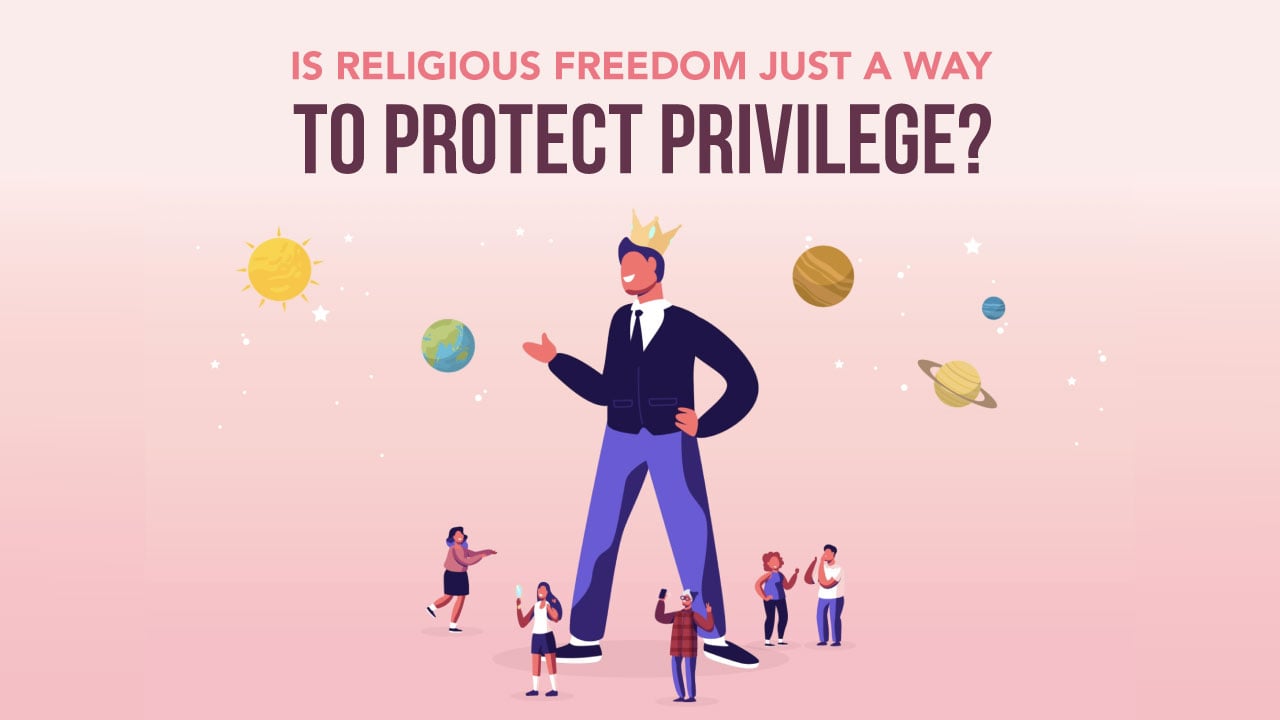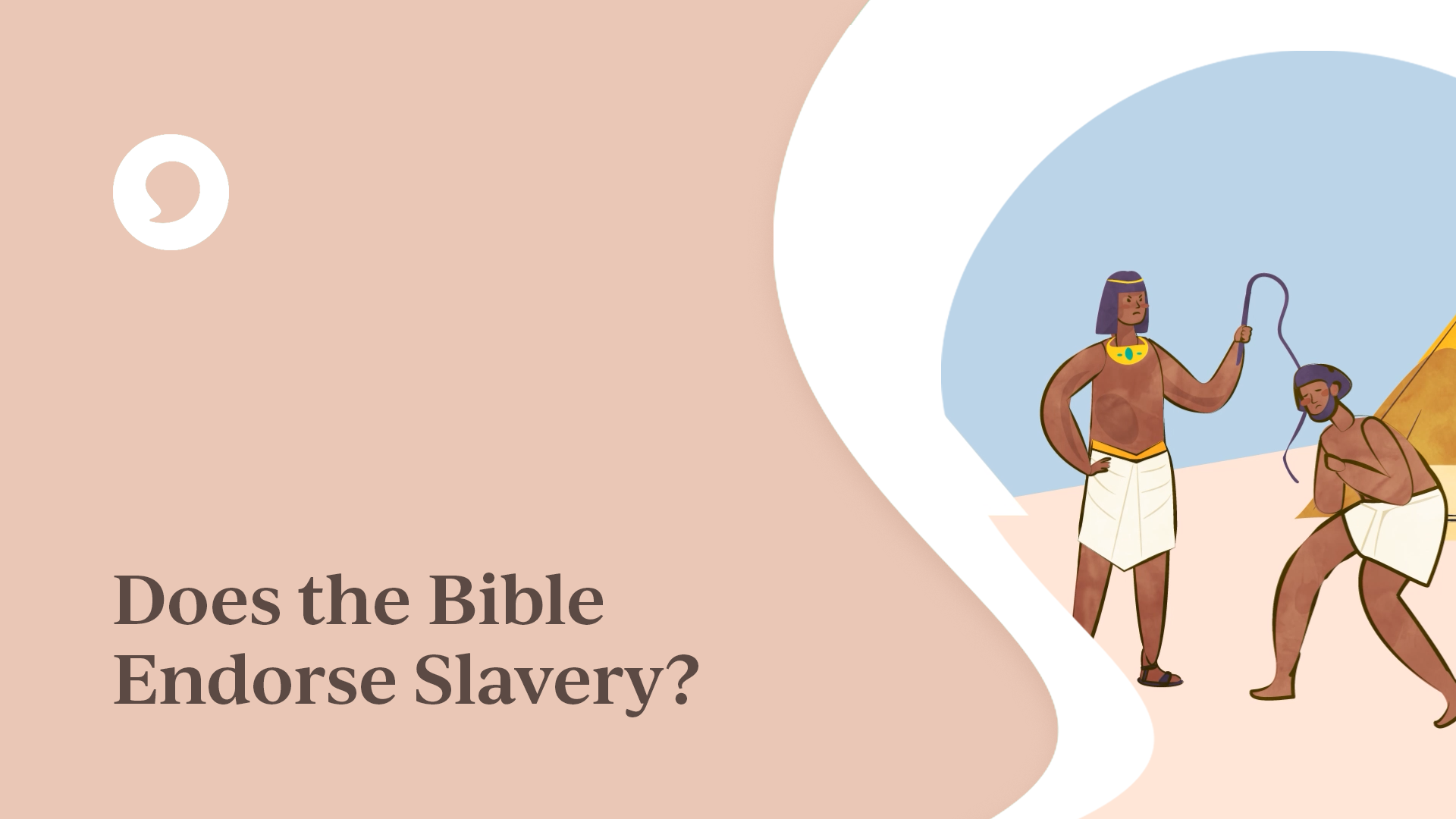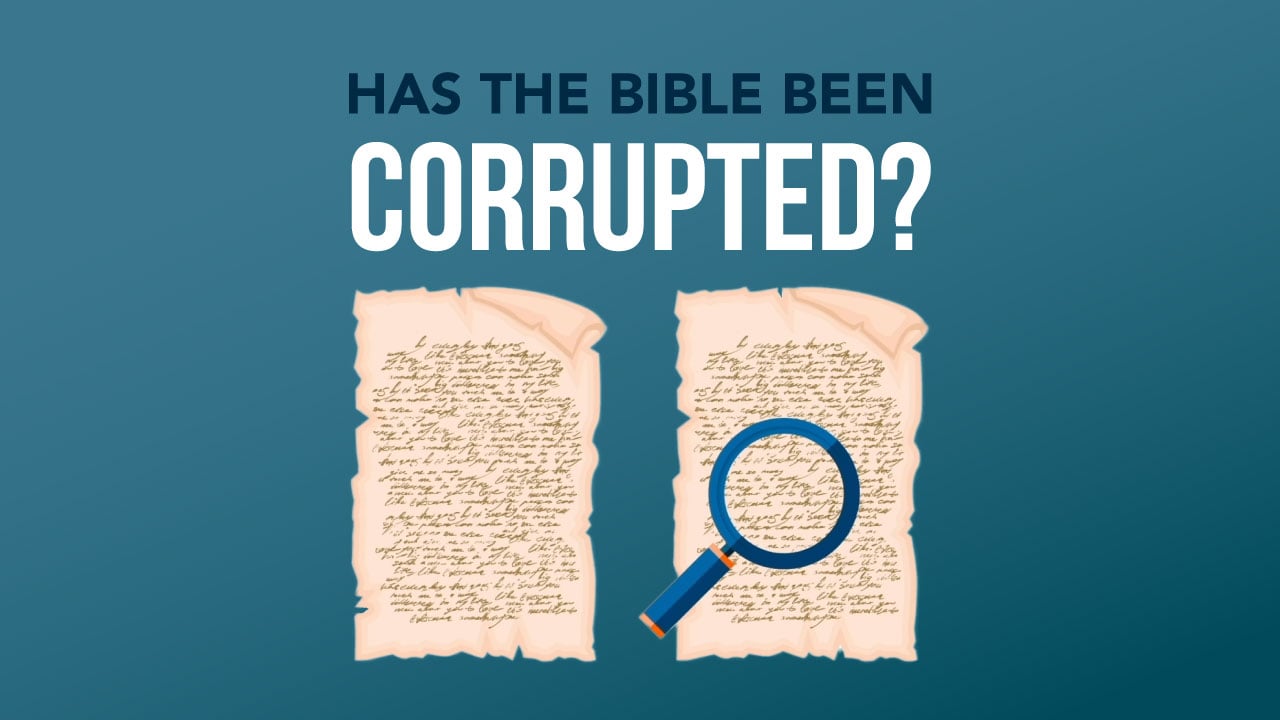You’re in a conversation and someone says, “The Bible endorses slavery. If it’s wrong about slavery, it’s probably wrong about other things too.”
What would you say?
It’s true that the Bible, in both the Old and New Testament, talks about slavery. But does this mean that the slave trade that is such a shameful part of our history is actually something the Bible supports? No, and here are four reasons why.
1. The slavery talked about in the Bible was more like servitude. 2. Slaves were to be treated as people, not property.
3. The Bible demands equal treatment regardless of race or class.
4. Christians ended the Slave Trade.
You’re in a conversation and someone says, “The Bible endorses slavery. If it’s wrong about slavery, it’s probably wrong about other things too.” What would you say? It’s true that the Bible, in both the Old and New Testament, talks about slavery. But does this mean that the slave trade that is such a shameful part of our history is actually something the Bible supports? No, and here are four reasons why. First, the slavery talked about in the Bible was more like servitude. When we hear the word slavery, we usually think of slave ships carrying Africans away from their home to be bought and sold as the property of white people in other parts of the world. But the Hebrew word sometimes translated as “slavery” in the Bible refers to something very different. Before the development of modern economies that lead to the kind of wealth we see today, and governments capable of offering large welfare systems, cultures developed ways to deal with the problem of poverty. Because in Old Testament times there was no such thing as government assistance, people would often sell themselves in order to have the basic necessities of food and shelter. Slavery, in this sense, was a type of social safety net. Slavery was also a way to deal with bankruptcy. Those who could not repay a debt would sell themselves to repay it. But this kind of slavery was usually not for life—unless one voluntarily did so. In the Jewish law, servitude would last for 6 years; the slaves would be freed in the 7th year. And every 50 years, in what was called the year of Jubilee, all debts were wiped out. It is undoubtedly true that some slaves were treated terribly, but that’s not because the Bible encouraged it or even permitted it. Though many nations at that time would take slaves after a war, Israel was not permitted to. This leads to the second point. Slaves were to be treated as people, not property. Because Israelite servitude was not rooted in racism or even classism, servants had legal protections. In Israel, if a “master”—more like an employer—permanently injured a servant, the servant would be set free without any debt. And to strike and kill a servant meant capital punishment. Israel was also commanded to harbor runaway slaves from surrounding nations, where they might be treated cruelly. To harbor runaway slaves in other countries often meant the death penalty. And Exodus 21:16 demands the death penalty for slave traders. Roman slavery is the context of the New Testament era was a different system. Romans slaves who were taken in battle would often learn trades that they could use to be in a better financial situation for the rest of their lives once their slavery was over. They were allowed to marry, have families, purchase their freedom, and also have others purchase their freedom. The New Testament, like the Old Testament, recognizes the humanity of every person, regardless of their station in life. The apostle Paul even considered Roman slaves to be co-workers in his ministry. Because slavery was a common part of the culture in which Christianity was birthed, first-century Christians were both slaves and slave owners. However, Christianity planted the seeds that would ultimately lead to the undermining of both ancient Roman slavery as well as modern slavery. This leads to the third point. The Bible demands equal treatment regardless of race or class. The apostle Paul, living at the time of the Roman Empire, instructed slaves to obey their masters. However, he also wrote that, “There is neither Jew nor Gentile, neither slave nor free, nor is there male or female, for you are all one in Christ Jesus.” Christian masters and slaves were instructed to engage in activities—like eating meals and then the Lord’s Supper together— that would undermine and subvert slavery. Even more, New Testament writers instructed them using the language of family intimacy, such as “greet one another with a holy kiss.” Thus the New Testament is clear that our value as human beings, slave or free, is the same. In dozens of places, Christians are instructed to love everyone. We are told to “be kind and compassionate to one another,” “to not show partiality in judging” and “not to show favoritism.” The Bible is unequivocally opposed to the idea that one person is better or more valuable than another. In this way, the New Testament set the direction for the abolition of slavery in the western world. Which leads to the final point. Christians ended the Slave Trade. The Christianization of Europe eventually led to the disappearance of slavery until its modern form emerged in the fifteenth century. And then it was a Christian, William Wilberforce, who led the effort to eliminate slave trade in England. It was Christian, abolitionist preachers during the Great Awakening of the early 19th Century that started the sustained effort to abolish slavery in the United States. It was a Christian pastor, Martin Luther King Jr., who led the Civil Rights movement of the 20th century in the United States. This followed a long history of Christians working for human rights because of the gospel’s commitment to the equal dignity of every person. The history of slavery is a difficult and important conversation. But the next time someone tries to undermine the Bible’s authority by suggesting that it endorses slavery, remember: The slavery talked about in the Bible is more like servitude. In both the Old and New Testaments, slaves were to be treated as people and not as property. The Bible demands equal treatment regardless of race or class. The entire gospel highlights that in Christ, we are all one. Christians ended the Slave Trade. Not only does the Bible not endorse slavery, it provided both the perspective and the motivation to those who fought against it the hardest.
 Read More
Read More




